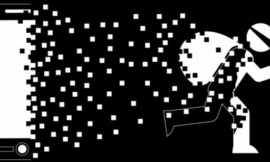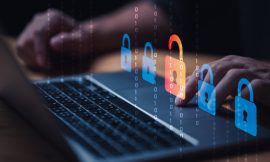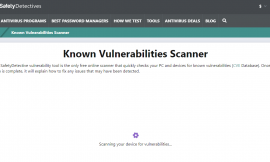
Published on: April 29, 2022 
The United States has offered $10 million to anyone who has information regarding the Russian military hackers who orchestrated the notorious NotPeyta cyberattack.
NotPetya first appeared in June 2017 and was spread via a poisoned update to a Ukrainian accounts program widely used by businesses in the country.
Victims found their data scrambled by the ransomware as a result of this attack. One high-profile victim was Pavlo Rozenko, who at the time was the deputy prime minister of Ukraine. He posted on Twitter a photo of his PC, which was in the process of being encrypted by NotPetya.
However, victims of the attack were not limited to Ukraine. NotPetya targeted power plants, airports, and government computers in dozens of countries. Victims included pharmaceutical firm Merck, law firm DLA Piper, container ship operator Maersk, and British advertising company WPP.
In its announcement on Tuesday about the reward, US authorities revealed that NotPetya had cost American organizations around $1 billion in losses.
“These cyber intrusions damaged the computers of hospitals and other medical facilities in the Heritage Valley Health System (Heritage Valley) in western Pennsylvania, a large U.S. pharmaceutical manufacturer, and other US private sector entities,” US State Department said.
The six men named by the US authorities are GRU officers Yuriy Sergeyevich Andrienko, Sergey Vladimirovich Detistov, Pavel Valeryevich Frolov, Anatoliy Sergeyevich Kovalev, Artem Valeryevich Ochichenko, and Petr Nikolayevich Pliskin.
A federal grand jury indicted the six Russian officers in October 2020 on counts of conspiracy to conduct computer fraud and abuse, conspiracy to commit wire fraud, wire fraud, damaging protected computers, and aggravated identity theft.
The Russian military hacking group associated with the men has also been implicated in a series of cyber attacks against Ukrainian critical infrastructure and government departments.
Source of Article



